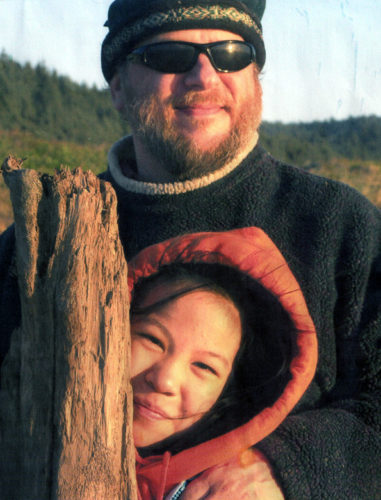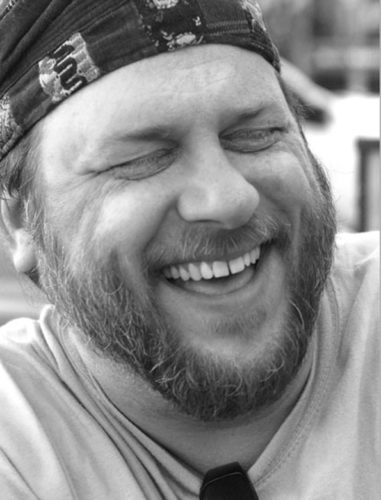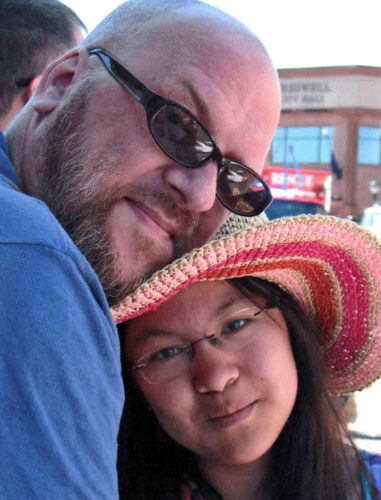Daniel Barnhart recently joined the Specialized Student Services department in a new position as Systems Behavior Specialist and will be working extensively with staff out in the field.
What does a “Systems Behavior Specialist” do?
I look at the Systems we have in place, whether its classroom management, environment, implementation of PBIS or anything in between, and recommend supports, adjustments or accommodations that can overall assist in situations where we’re experiencing a lot of challenging behaviors.
Give us a snapshot of yourself.
Grew up in farm country working on oil wells and doing auto body work and general construction. I’ve helped to develop and implement behavior programs, but I’ve also been a hotel catering director, landscape gardener, educator, Marketing and Communications Director, Certified Financial Planner, Director of PR, copywriter, corporate speechwriter, Mergers and Acquisitions associate, consultant to the British government Learning Skills Council, professional actor, musician, composer of three stage musicals, contributing author, creative developer for children’s entertainment television and creator of two children’s book series. I’ve taught in classrooms or courses from K-college level.
Why so many different things?
I’m naturally curious. But also, a lot of those things are simultaneous. For instance, I was a catering director while I was an undergraduate, got my Financial Planner licensing while I was an Editorial Director, …things like that. But if you look at it really, most of those jobs were still calling on or at least utilizing applied behavior analysis principles.
How did you end up in education (again)?
After abrupt life changes and challenges I decided to get back to the one thing I was always committed to—helping children with emotional needs. At one point in my life I was asked to help develop and implement a Behavior Program and it was the most fulfilling work that I’d ever done.
Tell us something we’d probably never know about you.
I’ve met two sitting presidents and been at ground zero for two international incidents. (I wasn’t the cause 😮 !)
Single out one accomplishment you’re extremely proud of?
I’m a widower who raised my daughter since age 8 and managed not to screw up [too badly] the incredible influence my wife had up to that point. My daughter successfully enters college this year with a 4.0 Associates Degree she obtained while in high school through the Running Start program. I plan to let her support me. 😊
Is there a consistent message you find yourself repeating in your work with adults and children?
We shouldn’t be afraid of, or work to avoid conflict. Somewhere the idea of ‘conflict’ as ‘bad’ entered the collective consciousness. But conflict is where the learning happens and it is an intrinsic internal part of growth when we face things new or challenging. That’s true for everyone—adults and children. We just have to teach skills in how to handle that conflict. What we should avoid is confrontation, which happens when we engage conflict without the appropriate skills or commitment to learning from conflict.
 What piece of understanding do you wish you could convey in your work with teachers and educators?
What piece of understanding do you wish you could convey in your work with teachers and educators?
Certainly the distinction between conflict and confrontation. But also to understand that children do as well as they are able. Their behavior is communication. So when there are problems with a child’s behavior it’s on the adults to begin from that standpoint of attempting to see what’s really being communicated—and it’s usually fear and frustration based.
What do you see as the biggest challenge for things going forward?
Public Education needs a paradigm shift if it is to remain targeted and beneficial to current needs—most especially in K-3 but in all levels. While there’s pressure from public perception and a focus on testing and scores, pursuing those goals without recognizing the need to overtly and covertly teach children the necessary social and emotional skills needed to access that learning is actually creating most of the behavioral challenges we see in schools. We have to recognize that a lot of the early learning has to be at the social and emotional level and integrate that into our systems rather than try to simply add a piece of curriculum and band-aid a problem.



Leave A Comment